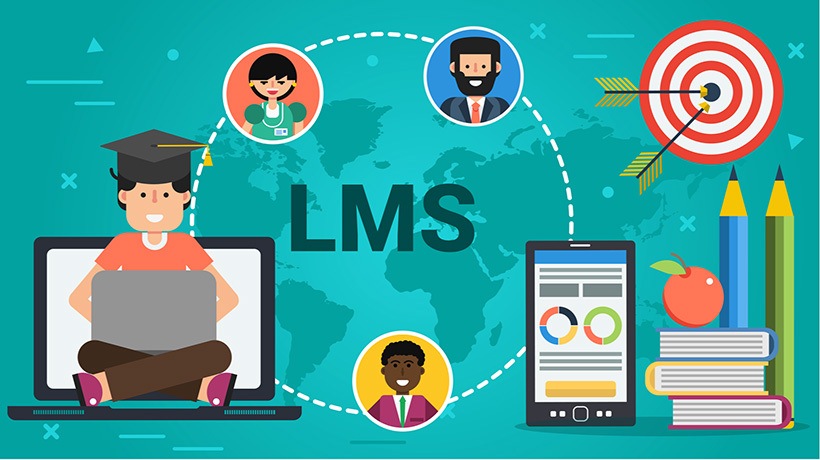
A software programme or platform known as a learning management system (LMS) is created to make it easier to offer, manage, and track online learning and training programmes. It gives educators, trainers, and students a centralised platform to access and participate in educational resources and activities. The following are some essential attributes frequently seen in learning management systems:
1. Course Management: Instructors may design, plan, and deliver courses online thanks to the LMS. The course content can be organised logically by uploading course materials including lecture notes, presentations, videos, and quizzes.
2. Administrators can create and enrol users in courses, assign roles and permissions, and monitor user progress using the system's user management features.
3. Organising and storing learning resources including documents, videos, photos, and interactive modules is made possible by the LMS's content management system (CMS). Version control, content reuse, and simple material update are all supported.
4. Exams, quizzes, and assessments can all be created and delivered online using the system's features. It allows numerous question formats, automated grading, and instant learner feedback.
5. Collaboration and communication: The LMS has communication options that make it easier for teachers and students to engage and work together. In order to encourage participation and knowledge sharing, it could incorporate message boards, chat functions, and messaging services.
6. Tracking and Reporting of Learner Progress: The system keeps track of and logs information about learner progress, such as course completion, test results, and engagement metrics. Reports are produced by it that include information on student performance and overall course effectiveness.
7. The LMS enables instructors to grade assignments, give feedback to students, and keep track of their progress. It might have options for anonymous and rubric-based grading.
8. Compliance and Certification: The system facilitates the issuance of certificates and badges upon successful completion of programmes or particular learning objectives. Additionally, it might support ensuring adherence to legal or regulatory obligations.
9. Mobile Accessibility: A lot of contemporary LMS platforms have mobile applications or responsive designs that let students use smartphones or tablets to view course materials and take part in learning activities.
10. Integration and Customization: The LMS frequently connects with other educational software and hardware, including platforms for video conferencing, learning analytics software, and content production software. Additionally, it might include branding, course design, and user interface customization choices.
NOTE:- Because different systems offer varied functionalities and capacities, these aspects may differ based on the particular LMS platform. With regard to managing and providing online learning experiences, whether in educational institutions, corporate training settings, or other learning contexts, an LMS offers a comprehensive solution.
